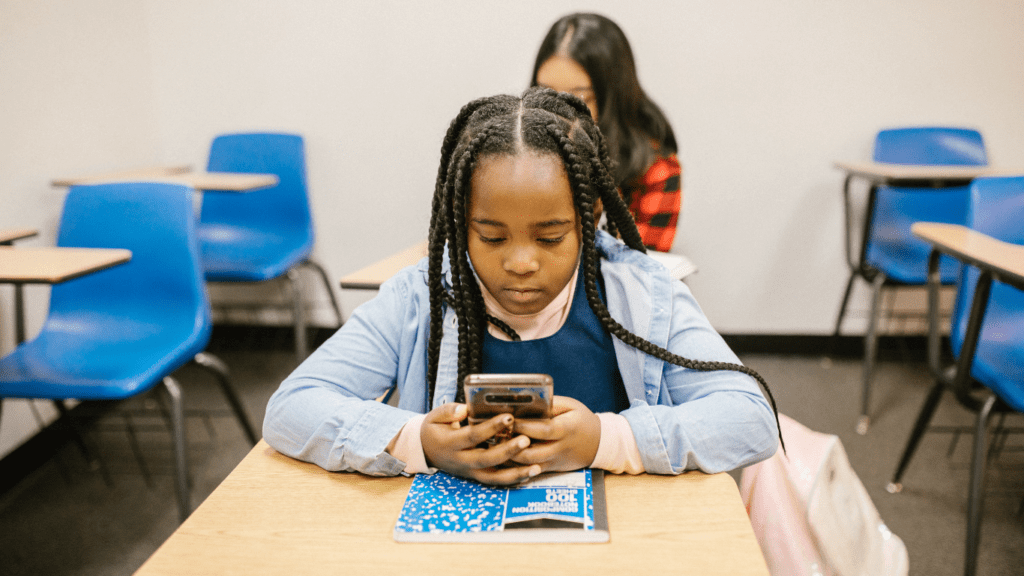Exploring the Role of Social Media in Child Development
Social media shapes child development in multifaceted ways. It’s crucial to understand these effects to help children benefit from digital interactions.
Cognitive Effects
Children’s use of social media influences their cognitive development. Platforms like YouTube, Instagram, and TikTok offer diverse learning resources that foster educational growth.
Interactive content can enhance problem-solving skills and creativity. For instance, educational videos on science experiments stimulate curiosity and critical thinking.
However, excessive use of social media may impair attention spans and reduce academic performance. Research by Common Sense Media in 2021 noted that students who frequently check social media had lower grades.
Balancing online and offline activities ensures cognitive benefits without detrimental effects.
Social Skills Impact
Social skills development is another critical area affected by social media. Online platforms help children connect with peers, share experiences, and express themselves.
For example, joining interest-based groups encourages collaboration and communication skills.
Conversely, heavy reliance on virtual interactions can hinder face-to-face communication abilities. The American Academy of Pediatrics reports that extensive screen time may lead to social isolation.
Encouraging real-world social activities alongside digital interactions mitigates these negative impacts.
These aspects underscore the dual nature of social media’s role in child development. Parents and guardians play a vital role in guiding children to harness the positive while minimizing the adverse effects of their online engagements.
Psychological Implications of Social Media on Children

Social media significantly impacts children’s psychological well-being. These impacts include:
- changes in body image
- self-esteem, anxiety
- depression
Body Image and Self-Esteem
Exposure to curated images on social media distorts children’s perceptions of beauty standards. Platforms like Instagram and TikTok showcase idealized body images and lifestyles, which can make children feel inadequate.
Studies indicate that 69% of teens compare their bodies to these images. This comparison often leads to decreased self-esteem, especially among girls aged 12-15. Encouraging children to engage with diverse and realistic content can help mitigate these effects.
Anxiety and Depression
Constant connectivity on social media creates pressure to maintain an online persona, leading to anxiety.
- Children often feel compelled to gain likes, comments, and followers.
- A recent study found that 32% of teens feel worse about their lives after browsing social media.
- This pressure can trigger symptoms of depression.
- Cyberbullying further exacerbates these issues, with victims experiencing heightened anxiety and depression.
- Educating children about healthy online habits and promoting in-person interactions can help reduce these psychological impacts.
Safety Concerns for Children on Social Media
Children face numerous safety concerns on social media. Parental vigilance and education are crucial to helping children navigate these dangers.
Cyberbullying
Cyberbullying has become a prevalent issue due to the anonymity social media provides. Children targeted by cyberbullying often suffer from anxiety, depression, and decreased self-esteem.
Cases of relentless harassment, such as hurtful comments and spreading rumors online, can significantly impact their mental health.
Monitoring children’s social media activity and fostering open communication about their online experiences can help mitigate the effects of cyberbullying.
Online Predators
Online predators pose a significant threat to children on social media. Predators often exploit the anonymity and accessibility of these platforms to target vulnerable children.
They may masquerade as peers to gain trust and manipulate children into sharing personal information or engaging in inappropriate activities.
Educating children about the potential dangers, teaching them to recognize red flags, and encouraging them to report any suspicious interactions can reduce the risks associated with online predators.
Navigating the Digital Landscape: Guidance for Parents
Parents play a crucial role in helping children navigate social media safely and responsibly. Specific strategies ensure children benefit from online experiences while minimizing risks.
Setting Boundaries
Establishing clear rules about social media usage helps create a balanced digital environment. Set time limits for daily usage to prevent excessive screen time.
Designate device-free zones in the home, such as bedrooms and dining areas, to encourage face-to-face interactions. Monitor the apps children use, ensuring they meet age-appropriate criteria.
Promoting Healthy Online Habits
- Instilling healthy online habits early supports children’s well-being.
- Encourage children to follow diverse accounts that align with positive interests.
- Teach them to recognize and avoid harmful content, like cyberbullying and graphic images.
- Promote the importance of taking regular breaks from social media to engage in offline activities, like hobbies or physical exercise.
By emphasizing these practices, children learn to use social media in a way that enriches their lives without compromising their mental health.

 Sarah Ainslie is an experienced article writer who has played a crucial role in the development of Toddler Health Roll. With a passion for child health and wellness, Sarah's writing offers parents insightful and actionable advice on nurturing their toddlers. Her articles are well-researched and thoughtfully crafted, providing practical tips on everything from nutrition to emotional well-being, making her contributions invaluable to the platform.
Sarah's dedication goes beyond just writing; she has been instrumental in shaping the content and direction of Toddler Health Roll, ensuring that it meets the needs of parents seeking reliable guidance. Her work has helped establish the platform as a trusted resource for families, offering comprehensive support for raising happy, healthy toddlers.
Sarah Ainslie is an experienced article writer who has played a crucial role in the development of Toddler Health Roll. With a passion for child health and wellness, Sarah's writing offers parents insightful and actionable advice on nurturing their toddlers. Her articles are well-researched and thoughtfully crafted, providing practical tips on everything from nutrition to emotional well-being, making her contributions invaluable to the platform.
Sarah's dedication goes beyond just writing; she has been instrumental in shaping the content and direction of Toddler Health Roll, ensuring that it meets the needs of parents seeking reliable guidance. Her work has helped establish the platform as a trusted resource for families, offering comprehensive support for raising happy, healthy toddlers.
